First period after a baby: What to expect from your first postpartum period
The first period after a baby can be daunting. Here's what to expect – from how long a first postpartum period lasts to how to tell it's a period or lochia.
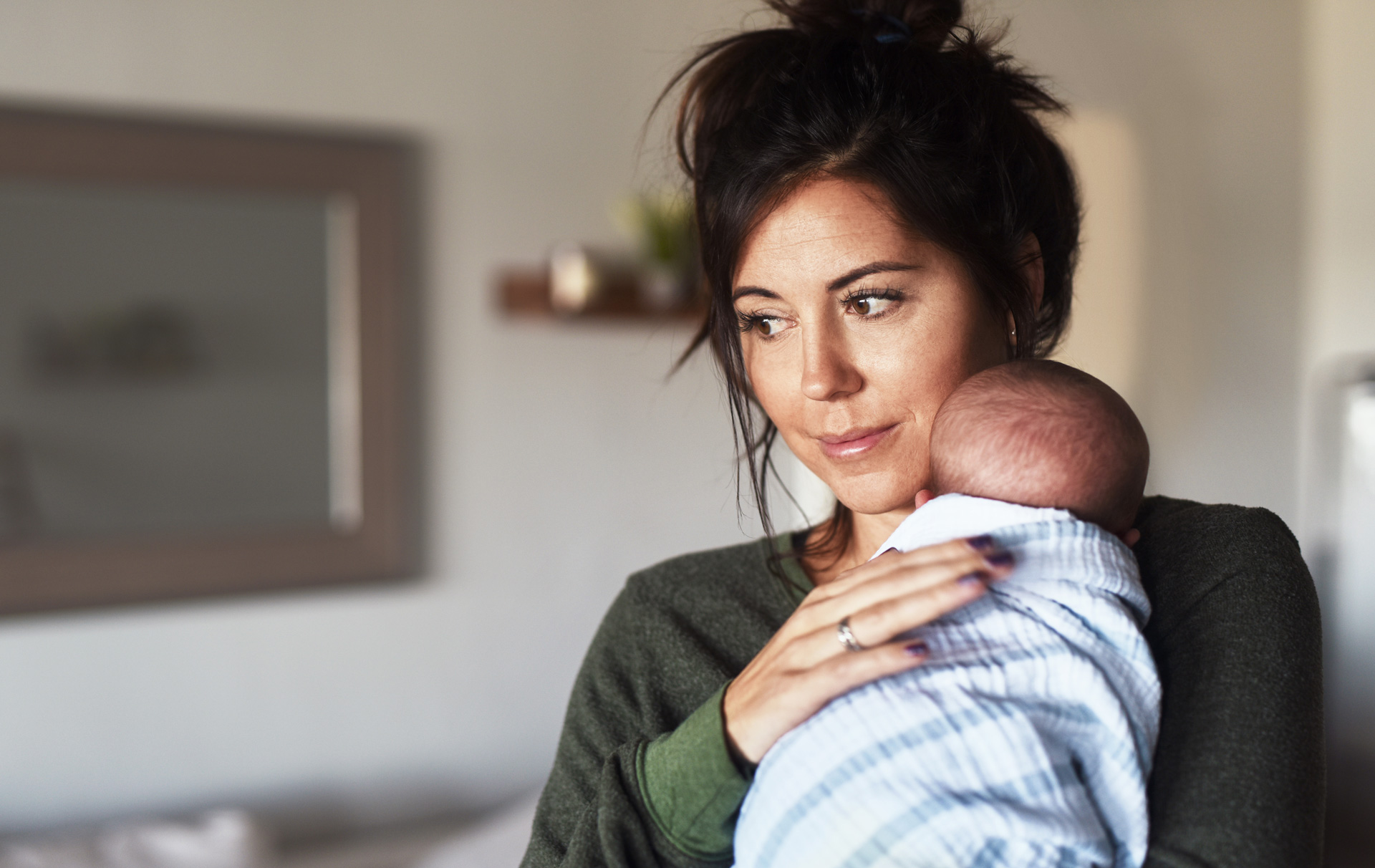

Your first period after a baby may come as a bit of a surprise but it's a natural part of the postpartum journey.
What new mums experience will differ, so don't be alarmed if your period comes more quickly or takes longer to arrive.
Before your first postpartum period, in the first day after childbirth, you will experience lochia. This is completely natural. However, if you are at all concerned by postpartum bleeding, don't hesitate to contact your GP or health visitor.
Here, two health experts explain what you can expect from your first postpartum period.
Will your first period after baby be heavy?
The first period after a baby will come after lochia. It could be different from what you're used to – you may find it's heavier or you may have cramps even if you didn't suffer from painful periods before childbirth. 'Your first period can be quite heavy and return in full force as the uterine lining sheds, along with blood clots from the birth itself,' says holistic health coach Mellissa Laycy. 'This is quite normal.'
'For some women it will be heavier than they had pre-pregnancy. For others the first one maybe lighter,' explains Marie Louise, aka The Modern Midwife and author of The Modern Midwife's Guide to Pregnancy, Birth and Beyond. 'Breastfeeding women may get spotting as the first sign of their period, which is very light bleeding.'
How long does a first postpartum period last?
When your first postpartum period starts and how long it lasts depends on a number of factors, such as the length of time you experience lochia and whether you're partially or fully breastfeeding. 'This does vary, like all periods do, and breastfeeding will also impact the length of bleeding,' says Marie Louise.
GoodtoKnow Newsletter
Parenting advice, hot topics, best buys and family finance tips delivered straight to your inbox.
Mellissa agrees: 'Everybody is different, so the exact time frame varies from woman to woman; however, one of the biggest determining factors is breastfeeding. Generally, a lot of women find that their period doesn’t actually return until after they have finished nursing, although this shouldn’t be taken as the gospel truth. If you have decided to bottle feed, then your period may return anywhere from 5-6 weeks after giving birth.'
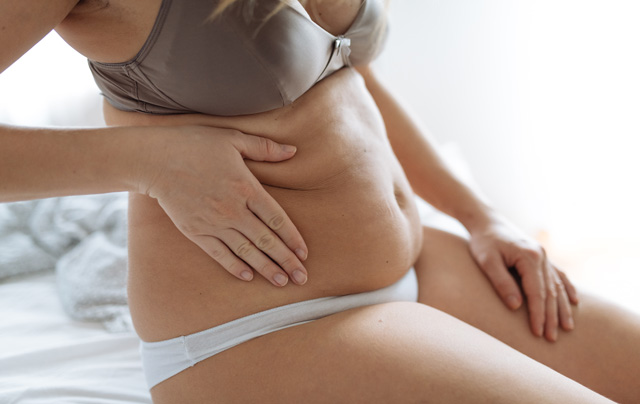
Can you use a tampon for your first period after a baby?
'Usually, pads are recommend for the first period. This is for comfort (if you have had a vaginal birth) and hygiene,' explains Marie Louise. 'You can also better monitor what you are losing – you'll be able to see the amount of blood, colour, and whether there are clots.' This also applies to lochia.
Marie Louise adds: 'Some breastfeeding women may not get a period for more than six months.' By this point many women will feel ready to use internal protection. 'They may want to use tampons or a moon cup after a day or two of monitoring their bleeding. It’s a choice and women know their bodies so it’s important they feel comfortable,' she says.
'Having said that, hygiene is really important for postnatal women regardless of birth type. As postnatal refers to the first eight weeks following birth if you bleed within this time I’d recommend pads and regular changes, and to avoid tampons.'
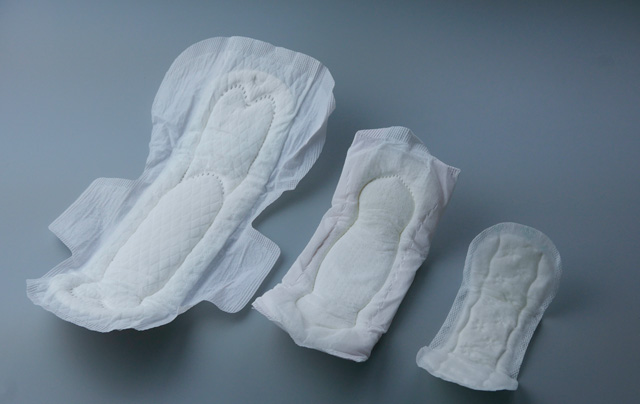
How can you tell if it is a first period after a baby or lochia?
All women bleed after giving birth. This is known as lochia and it's the body's way of removing blood, mucous and placental tissue from the womb. Lochia starts soon after birth – regardless of whether you've had a vaginal birth or a Caesarean – and usually lasts between 2-6 weeks, but can go on for longer. It starts off as relatively heavy and, over time, becomes lighter in flow.
Lochia flow becomes more moderate after a day or so and will get lighter as the days go on until it's more like spotting. It will change colour, too – beginning as red or brownish-red, then going darker brown or pinkish red.
'Lochia starts to change colour toward the end – it (often) becomes a dark brown colour.,' explains Marie Louise. Blood from your first postpartum period will look different. 'When your period starts, it tends to be a brighter colour. There's usually a few weeks between lochia stopping and your period starting.'
What to expect from a first postpartum period, according to a midwife
'This varies depending on each woman, her cycle and whether she has conditions such as endometriosis,' explains Marie Louise. 'Either way, all women experience changes to the endometrial lining. This can affect your first postpartum period in various ways,' she explains.
While most women will have lochia and their first postpartum period without any problems, there are signs to watch out for. 'If any bleeding is very heavy, very painful, is offensive smelling or there are clots that last a week, you should report these to your GP,' she advises. 'If you have any other concerns, you know your body. It’s important to get checked out if you feel something isn’t right.'
Be aware that you can become pregnant again as early as three weeks after childbirth, even if your periods haven't re-started. Avoid sex until lochia has finished, as it can put you at risk of an infection.

Debra Waters is an experienced online editor and parenting writer. She also has a strong background on health, wellbeing, beauty, and food. She currently writes for Goodto and Woman&Home, and print publications Woman, Woman’s Own, and Woman’s Weekly. Debra has written for What to Expect, Everyday Health, and Time Out. In addition, she has had articles published in The Telegraph and The Big Issue.
-
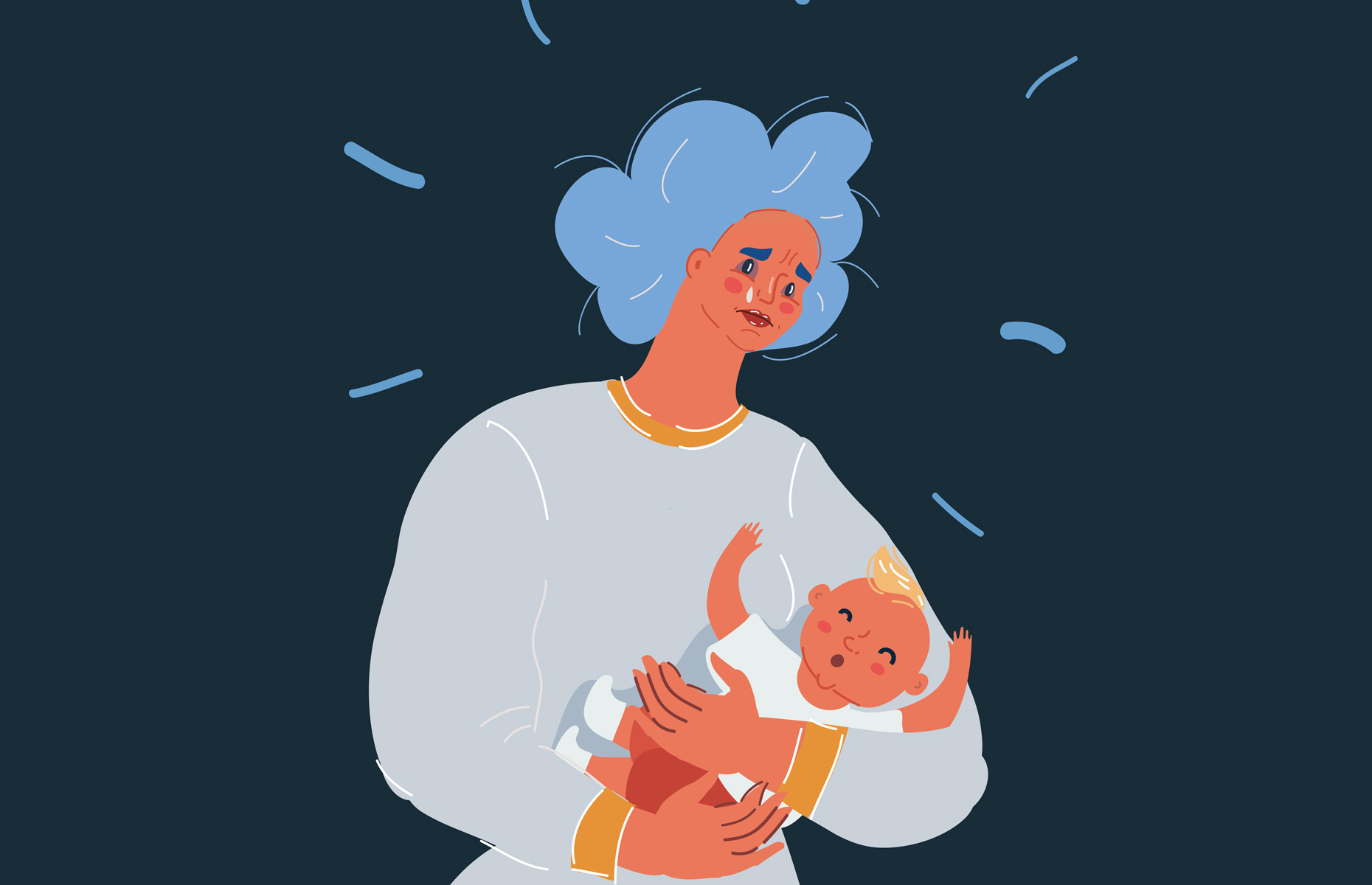 Postpartum psychosis: causes, signs, risks and treatment
Postpartum psychosis: causes, signs, risks and treatmentPostpartum psychosis can be a terrifying experience for a new mum. More extreme than postnatal depression, it needs urgent care but there is help available.
By Debra Waters Last updated
-
 Postnatal exercise: 5 ways to exercise after having a baby
Postnatal exercise: 5 ways to exercise after having a babyRegular post-pregnancy exercise can improve posture and strength, as well as increasing your energy and overall wellness
By Daniella Gray Last updated
-
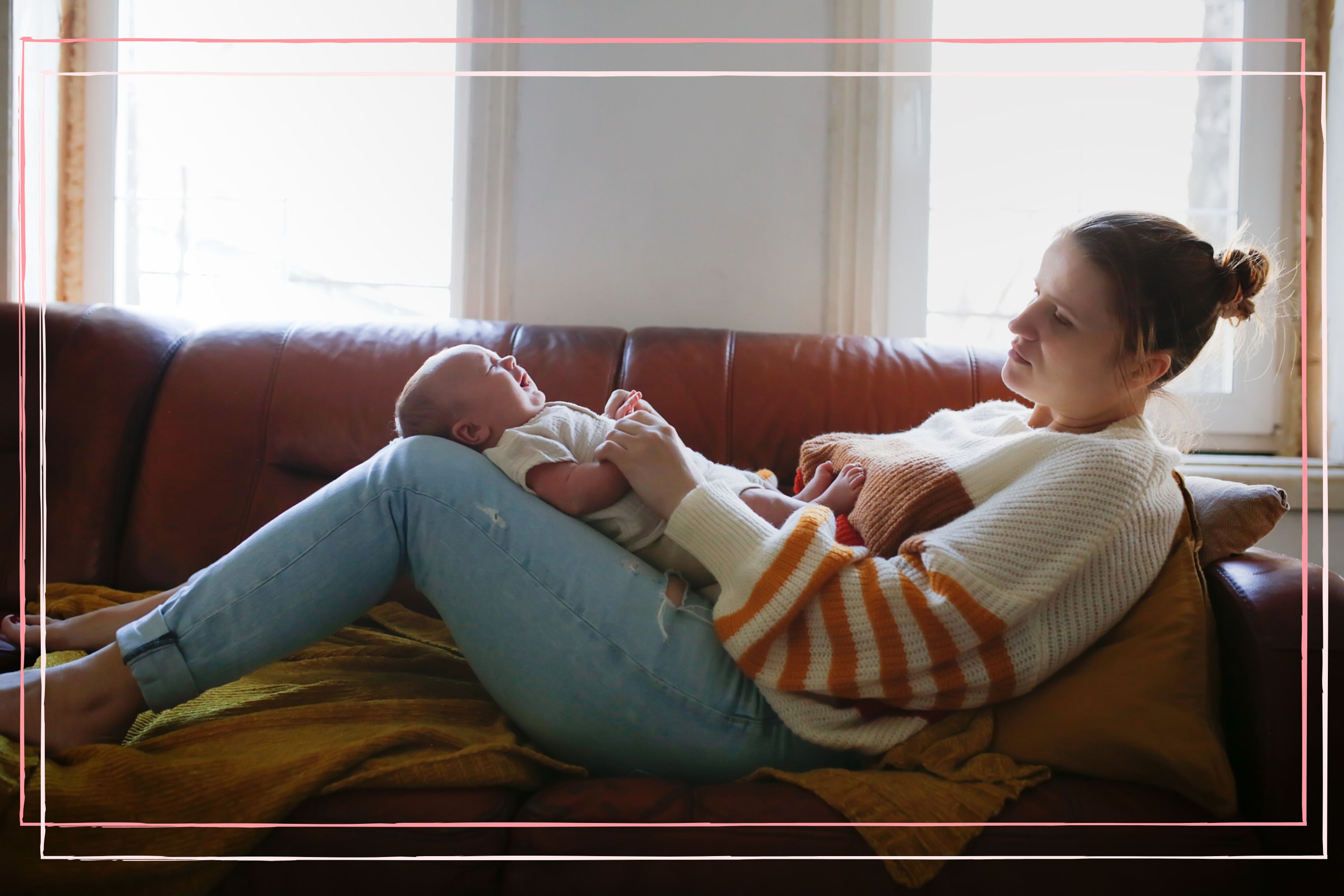 Bowel problems after pregnancy and childbirth are common but should not be ignored, here's why
Bowel problems after pregnancy and childbirth are common but should not be ignored, here's whyTwo doctors discuss the most common bowel problems after pregnancy and childbirth, sharing their advice on managing the issues and when to see a doctor
By Rachael Martin Last updated
-
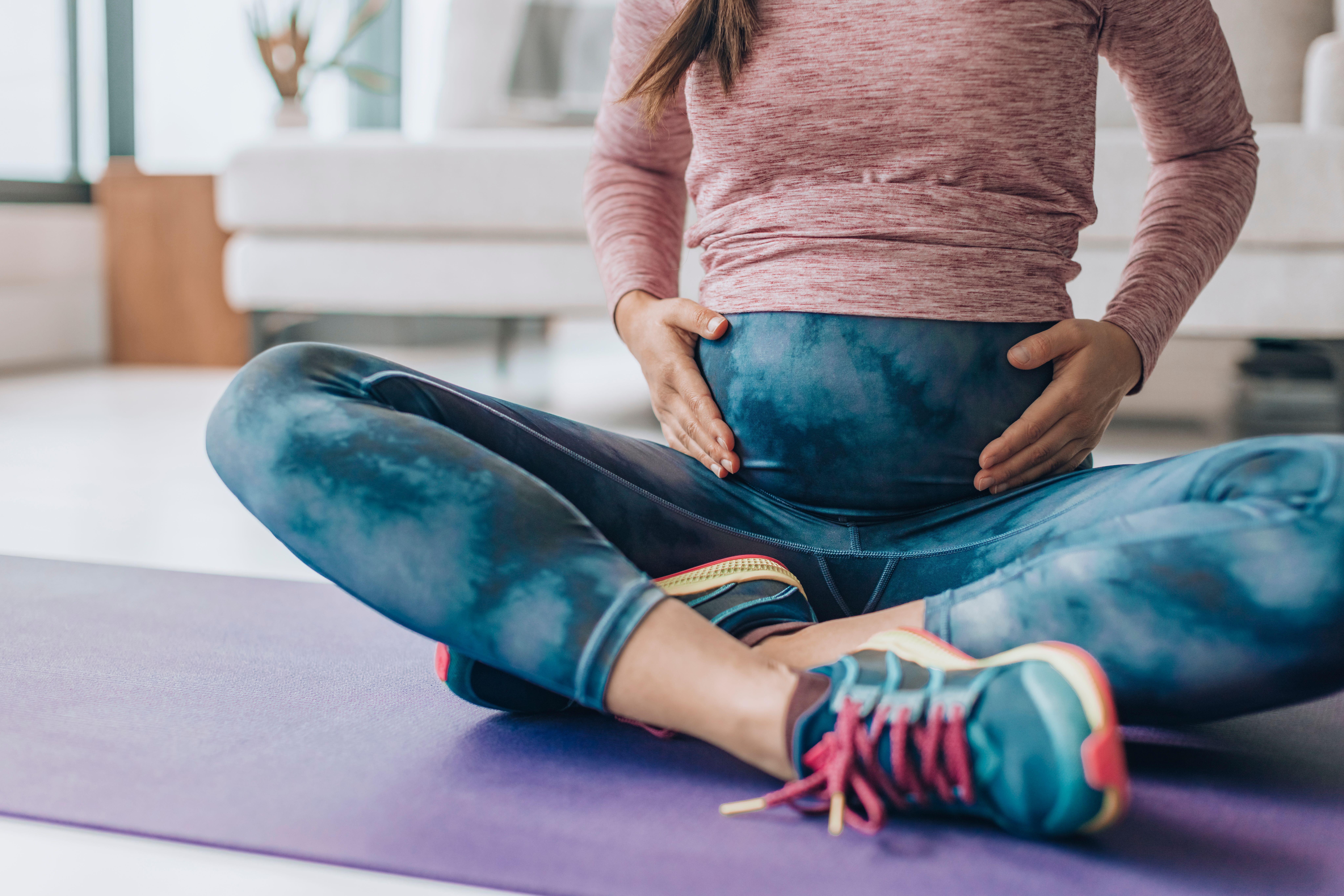 How to exercise your pelvic floor
How to exercise your pelvic floorYou've probably heard of pelvic floor exercises before - but are you doing them properly, or as often as you should be?
By GoodtoKnow Last updated